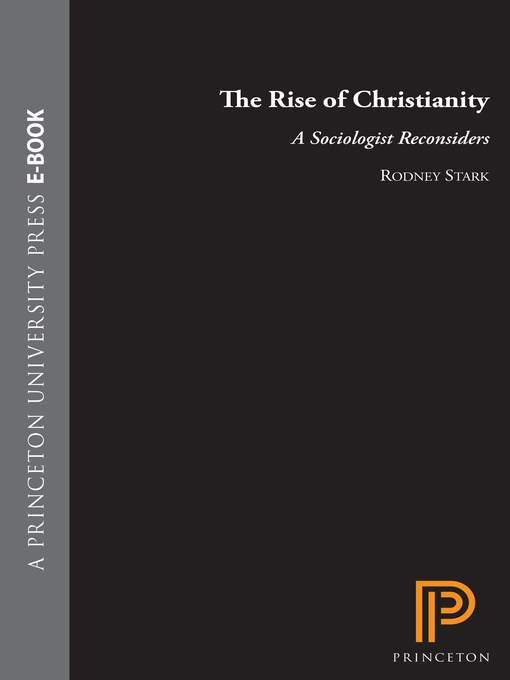
The Rise of Christianity
A Sociologist Reconsiders History
- اطلاعات
- نقد و بررسی
- دیدگاه کاربران
نقد و بررسی

June 15, 1996
Theories abound regarding the growth of Christianity in its first 500 years--that it succeeded most among the urban poor, that women may or may not have had a place, that it bred zealotry. Stark (sociology, Univ. of Washington) considers the theories of many of the classic Christian historians (Harnack, Meeks, and Wilckens, to name a few), subjecting their historical speculations to the rigors of social science as a means of ascertaining both their validity and their value. Through this method, Stark finds Christianity to be a "revitalization movement," a response to social crises. Those crises affected the wealthy as well as the poor, female as well as male, Greek as well as Jew. In Christianity, "doctrine took on actual flesh," and all seekers not only found a place but flourished in the culturally strange (for its time) dynamic of the nonethnic Christian community. Stark provides compelling reading, adding depth and coherence to the often nebulous hyperbole of historical hypotheses. Highly recommended for ancient history and seminary/religion collections.--Sandra Collins, SLIS, Univ. of Pittsburgh

May 13, 1996
The rise of Christianity from the death of Jesus to the establishment of the first Christian church is often portrayed as a rapid, almost seamless, movement in history. Sociologist Stark (Theory of Religion) here ponders why Christianity succeeded as it did in the early years of the first century. Stark uses contemporary social-scientific data, about why people join new religious movements and how religions recruit members, to investigate the formative history of Christianity. Among his findings is that the key factors in Christianity's success included the desire on the part of its members to assimilate into the dominant culture, the conversion of pagan men through intermarriage with Christian women and the commitment to voluntary martyrdom. Stark's conclusion that the rapid rise of early Christianity was due mainly to high fertility rates and social policies rather than to faith in the messianic message of Jesus is likely to generate spirited argument.




دیدگاه کاربران